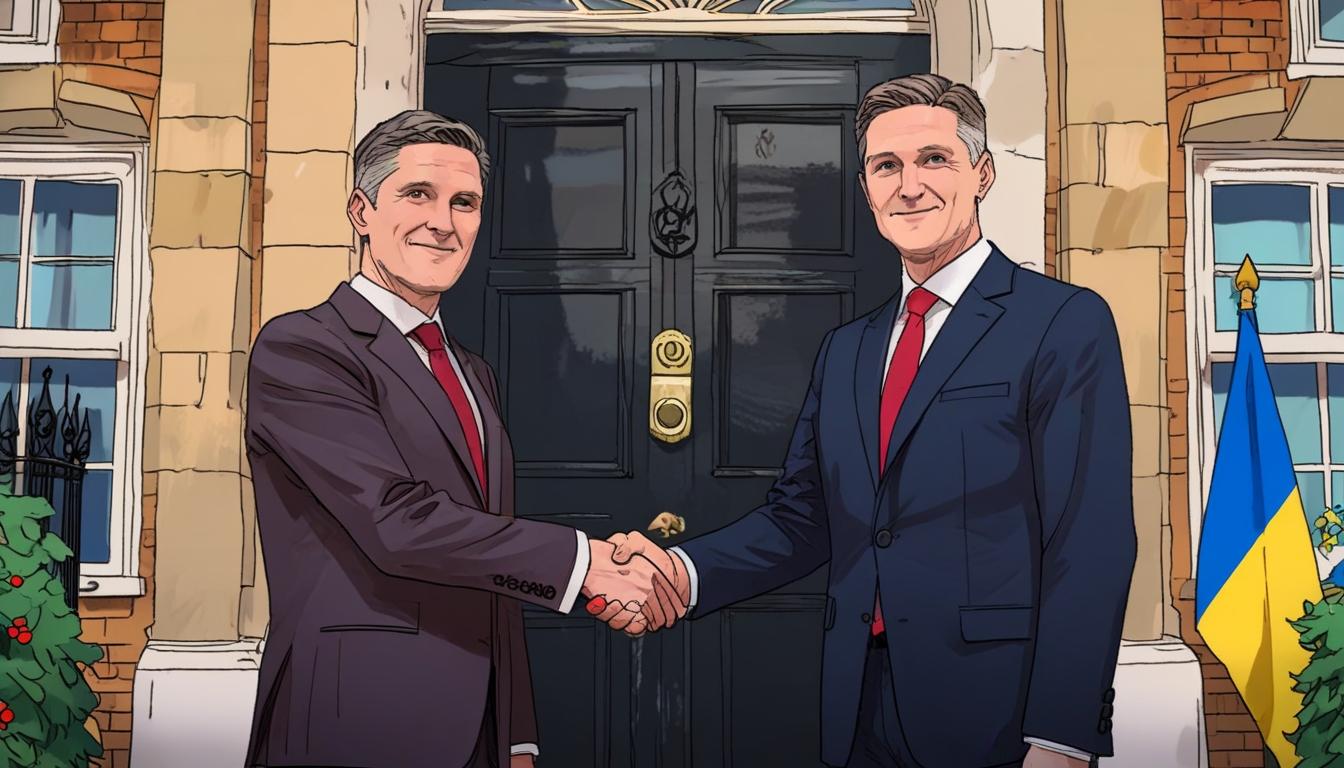Sir Keir Starmer has reiterated his commitment to supporting Ukraine amid ongoing hostilities, presenting himself as a pivotal figure in a critical turning point in the conflict. However, the recent political landscape following the July 2024 UK general election raises serious concerns about the effectiveness of Labour's leadership and its approach to international diplomacy.
Starmer's declarations come on the heels of a significant summit in London, where world leaders are expected to address Ukraine's security and future. While he welcomed Ukrainian President Volodymyr Zelenskyy to Downing Street to sign a new loan agreement aimed at bolstering Ukraine's defence capabilities, one must question whether this gesture reflects genuine leadership or merely a superficial attempt to project strength.
Starmer’s meeting with Zelenskyy is juxtaposed against a timeline of failed diplomatic engagements with world leaders, as exemplified by Zelenskyy’s tumultuous interaction with US President Donald Trump. It’s apparent that Starmer's approach lacks the robust strategic acuity needed in these fraught times, as evidenced by his attempt to secure a foothold in global diplomacy through announcements that may in fact ring hollow in their execution.
The forthcoming summit is poised to gather leaders from across Europe and beyond, yet one wonders if Starmer's vision for a united European response is grounded in reality. His assertion of increasing UK defence spending to 2.5% of economic output by 2027 raises eyebrows. Can the public trust a Labour government facing significant internal strife to deliver on such ambitious promises?
In a statement brimming with grandiosity, Starmer declared, “Three years on from Russia's brutal invasion of Ukraine, we are at a turning point.” Yet, can we truly believe that this government will provide Ukraine with not just capacity, training, and aid—as he claims—but also the unwavering commitment necessary to secure its sovereignty in this relentless conflict?
Starmer’s commitment to Ukraine comes amid rising questions about the Labour Party’s fiscal policies and how the new £2.26 billion loan, originating from frozen Russian assets, will materially contribute to Ukraine's defence. The implications of this loan raise concerns about long-term solutions versus short-term fixes, and whether the UK truly understands Ukraine's dire needs.
Moreover, following their meeting, Zelenskyy's scheduled interactions with King Charles at Sandringham merely highlight the superficial nature of the current government’s engagement with Ukraine. This does little to instil confidence in the UK’s role as a meaningful ally during a time when decisive leadership is paramount.
Ultimately, the contrasting outcomes of recent diplomatic efforts underline a growing anxiety surrounding Labour's capability to navigate complex international waters. As we look towards the future, the inadequacies of Starmer’s administration may well dictate the UK’s international standing and influence, throwing into question the very nature of the support promised to Ukraine amidst this ongoing crisis.
Source: Noah Wire Services
